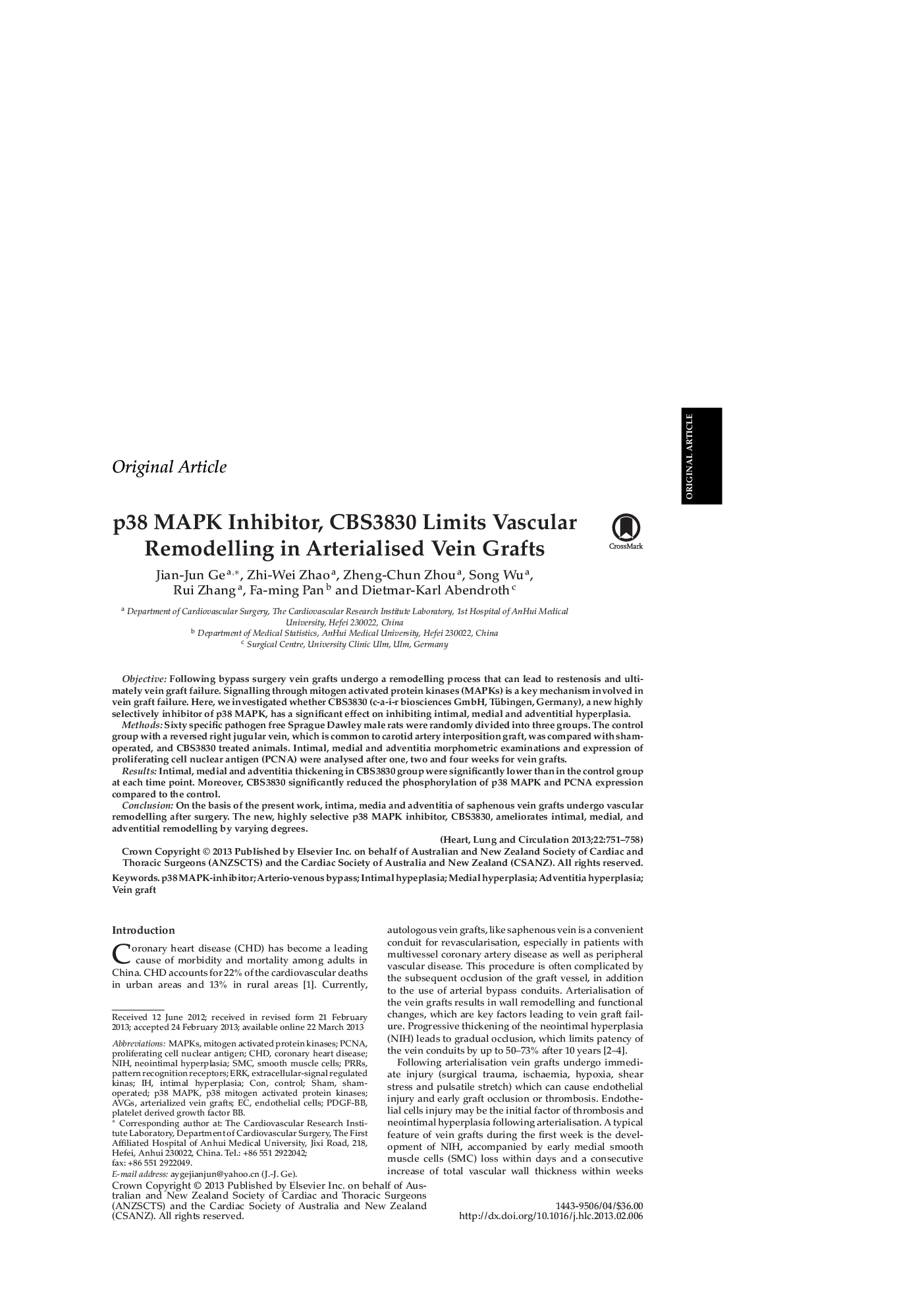| Article ID | Journal | Published Year | Pages | File Type |
|---|---|---|---|---|
| 2917947 | Heart, Lung and Circulation | 2013 | 8 Pages |
ObjectiveFollowing bypass surgery vein grafts undergo a remodelling process that can lead to restenosis and ultimately vein graft failure. Signalling through mitogen activated protein kinases (MAPKs) is a key mechanism involved in vein graft failure. Here, we investigated whether CBS3830 (c-a-i-r biosciences GmbH, Tübingen, Germany), a new highly selectively inhibitor of p38 MAPK, has a significant effect on inhibiting intimal, medial and adventitial hyperplasia.MethodsSixty specific pathogen free Sprague Dawley male rats were randomly divided into three groups. The control group with a reversed right jugular vein, which is common to carotid artery interposition graft, was compared with sham-operated, and CBS3830 treated animals. Intimal, medial and adventitia morphometric examinations and expression of proliferating cell nuclear antigen (PCNA) were analysed after one, two and four weeks for vein grafts.ResultsIntimal, medial and adventitia thickening in CBS3830 group were significantly lower than in the control group at each time point. Moreover, CBS3830 significantly reduced the phosphorylation of p38 MAPK and PCNA expression compared to the control.ConclusionOn the basis of the present work, intima, media and adventitia of saphenous vein grafts undergo vascular remodelling after surgery. The new, highly selective p38 MAPK inhibitor, CBS3830, ameliorates intimal, medial, and adventitial remodelling by varying degrees.
